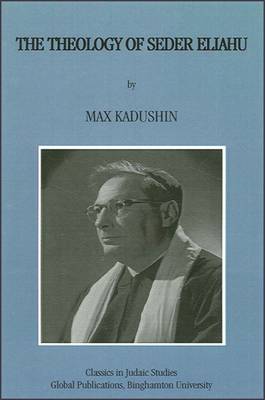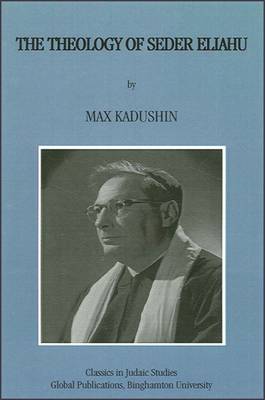
- Afhalen na 1 uur in een winkel met voorraad
- In januari gratis thuislevering in België
- Ruim aanbod met 7 miljoen producten
- Afhalen na 1 uur in een winkel met voorraad
- In januari gratis thuislevering in België
- Ruim aanbod met 7 miljoen producten
Omschrijving
Attempts to discover a coherent unity in rabbinic theology.
In this study of Seder Eliahu, the author endeavors to describe the various rabbinic ideas the book contains, and, in addition, the principle of coherence uniting these ideas. The attempt to discover a coherent unity in rabbinic theology is a hazardous undertaking. However, the author believes that we ought not to reconcile ourselves to accepting rabbinic theology as a congeries of ideas unrelated to each other, an inarticulate mass of separate concepts. Despite the warnings of Schechter and Moore, the author attempted for a time to cast the rabbinic concepts in the Seder into some sort of logical order. A careful analysis yielded the conviction that this Midrash does possess coherence, but of an entirely different kind from that produced by logical, systematic thought. The author calls this type of thinking "organic thinking" or "harmonious thinking." In the light of the organic coherence of rabbinic theology, the individual concepts reveal a structure otherwise not to be discerned.
Specificaties
Betrokkenen
- Auteur(s):
- Uitgeverij:
Inhoud
- Aantal bladzijden:
- 245
- Taal:
- Engels
- Reeks:
Eigenschappen
- Productcode (EAN):
- 9781586841003
- Verschijningsdatum:
- 1/01/2001
- Uitvoering:
- Paperback
- Formaat:
- Trade paperback (VS)
- Afmetingen:
- 140 mm x 216 mm
- Gewicht:
- 190 g

Alleen bij Standaard Boekhandel
Beoordelingen
We publiceren alleen reviews die voldoen aan de voorwaarden voor reviews. Bekijk onze voorwaarden voor reviews.









